
Explore new ways to celebrate 2022 Family Literacy Day.
- Subject:
- Early Childhood Development
- English Language Arts
- Material Type:
- Primary Source
- Author:
- Jessica Wall
- Date Added:
- 01/10/2022

Explore new ways to celebrate 2022 Family Literacy Day.
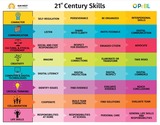
In today's world, 21st century skills are crucial for our learners as they provide the foundation for success in a rapidly evolving society. These skills, such as critical thinking, creativity, communication, collaboration, and digital literacy, equip children with the abilities to navigate complex challenges, adapt to change, and thrive in a globalized world. By nurturing these skills, we empower our learners to become agile, innovative, and socially responsible individuals who can actively contribute to the progress and well-being of our society.This resource has a 21st Century Skills poster, a big view 21st Century Skills Scope and Sequence document for grades 1-12, and a more focused view 21st Century Skills Scope and Sequence document for each of the following grade groupings 1-2, 3-6, 7-9, 10-12. This resource also has Digital Literacy Scope and Sequence documents for each of the following grade groupings 1-2, 3-6, 7-9, 10-12 (linked in each of the previous documents).

The 6 minute video and accompanying document will show early years educators how to access resources and workshops using the Saskatchewan EdOnline site.

This is a video recording of the lunch and learn session from October 21st, 2021 on how the brain learns to read. Session Description: Do you wonder how our students brains learn to read? Join this session for an overview of what the scientific field has discovered and uncovered about our brains and the process the brain goes through to learn how to read. This will have a significant impact on how we plan to teach reading, writing, and spelling in the future.

Sesame Street's newest human resident, Mando (introduced in the fall of 2013), narrates while kids and a blue monster together tackle everyday frustrations -- like struggling to tie shoes, dealing with separation anxiety, taking turns, and going to bed -- and learn how to deal with them. Students must work through one problem before unlocking the next. Animated video clips show the blue monster's problem, then kids tap his belly to help him breathe deeply and calm down. When the monster is calm, students tap thought bubbles, which produces three possible strategies. Students get to choose which strategy the monster will try and then see him do it in another animated video clip. The technique of breathing, thinking, and doing is reinforced throughout.
This is a free app available from: (copy and paste URL into your browser)
Apple - https://apps.apple.com/us/app/id721853597?ign-mpt=uo%3D4
Google Play - https://play.google.com/store/apps/details?id=air.com.sesameworkshop.ResilienceThinkBreathDo
Amazon - https://www.amazon.com/dp/B00H56X50O?tag=comsenmed07-20

Spend sometime exploring the basic foundations of parent engagment and then learn about a variety of classroom strategies you can use to engage parents in student learning.

Our classrooms must be meaningful, relevant, and fun.
The Playful Classroom shows readers how to reconnect with students, parents, and your profession. In this mini course, join The Playful Classroom co-author Jed Dearybury as he takes you through some of the best take-aways from the book.
You'll see the research behind the power of play.
You'll see some real-life examples you can use right away.
You'll learn how to continue growing in your ability to create a playful classroom.
This FREE mini course includes an hour of video instruction from Jed himself as well as additional resources and a certificate of completion for ONE HOUR of professional development credit.
The accompanying book can be purchased at: https://theplayfulclassroom.com/
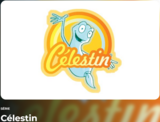
SÉRIE
Célestin
Célestin, un petit fantôme animé, sensibilise les jeunes enfants aux dangers de leur environnement quotidien tout en les amusant. À l’intérieur ou en plein air, il y a des règles d’or de la sécurité que les enfants ont besoin de connaître. Célestin vous charmera par ses nombreux conseils de sécurité.
Pour élèves de la 1ère à la 4e année.
Vous trouverez 46 épisodes dans cette série.
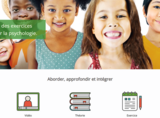
« Le but premier de ce site est d'accompagner les enseignantes, enseignants, étudiantes et étudiants dans l'observation d'enfants, et ce, tant à l’intérieur qu’à l’extérieur de la classe...
Le site contient des vidéos illustrant des comportements d'enfants de 0 à 12 ans, des textes théoriques et des exercices. La fiche descriptive de chacune des vidéos résume les éléments théoriques permettant de comprendre le comportement des enfants à l’aide de concepts utilisés en psychologie du développement. »
Le site propose également:
-Plusieurs articles - « De Piaget à Vigotsky, de courtes synthèses pour revoir les théories et les concepts », et
-Des exercices destinés aux enseignant.e.s - « Des activités pédagogiques pour approfondir, comprendre et intégrer »

Use this website to:
Login to your EYE-TA account
Confirm each student's details
Print class lists for observation of the EYE-TA
Access the 100 Activities
Access frequently asked questions and responses
Enter your EYE-TA data
Run the reports for your class
Run the individual student report

The Saskatchewan Ministry of Education has complied a number of resources for fostering an inclusive environment in the early years. Resources include handbooks, online modules, and videos.

As stated on the website, "The Early Years Evaluation – Teacher Assessment (EYE-TA) measures a variety of items and provides a holistic picture for school leaders." This link will provide an overview and explanation of each component of the assessment as well as the research behind it.
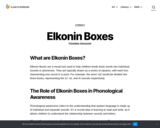
Class Playground printables are free to share, download, and print. Here you'll find printable Elkonin boxes (2-5 letters).
Be sure to check out the other resources offered by Class Playground while you're there.
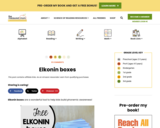
Elkonin boxes help kids build phonological awareness by helping them divide words into their individual phonemes.
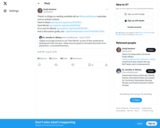
Emily Hanford discusses the broken education system and what the problem is. She also discusses what is being done to fix it. This is a link to her three-part documentary and what opened the door to the science of reading movement.

In over 30 years of clinical practice, Drs. Peg Dawson and Richard Guare have worked with thousands of children who struggle at home and in school. At the center of their struggles are weak executive skills, and through our writing and now this website, we spotlight these skills that are critical for school and life success.
We hope that by sharing what we have learned, we can help parents, teachers, and therapists to better understand the role executive skills play in healthy development and to identify tools and strategies they can use to assist “smart but scattered” kids become successful problem solvers and self-reliant adults.
Dr. Dawson offers a number of workshop options. In addition to the ones described below, she is happy to work with school districts to design trainings that meet their specific needs. These may include:
- workshops directed at regular education teachers to provide an overview of what executive skills are, how brain development governs executive skill development, what are developmentally appropriate expectations for executive skills at different grade levels, and classroom-based strategies to support executive skill development.
- workshops for special educators (including teachers, school psychologists, speech pathologists, occupational therapists, and behavior specialists) to learn how to design interventions both to limit the negative impact of weak executive skills and to help students learn effective coping strategies.
- consultation services to help school districts implement school-wide approaches targeting specific executive skill challenges. We have not found “off the shelf” curricula to be particularly effective for schools that want to do something more comprehensive to address executive skills. Rather, helping schools identify the specific challenges they want to address and to work with them to design an approach that fits the unique needs of the school or district appears to be a more effective approach.
- evening presentations for parents. These are offered to school districts within driving distance of Portsmouth, New Hampshire as a stand-alone offering. When a school district hires Dr. Dawson to do a full-day training with professionals, she is happy to provide a 1l5-2 hour presentation for parents at no additional cost.
(Peg has hosted PD in Saskatchewan before and would likely come back in the future) Has been initiated in the past from this source: http://www.jackhirose.com/

This Frontline Education webinar is a tutorial on how to administer Dr. Kilpatrick's Phonological Awareness Screening Test (P.A.S.T.)
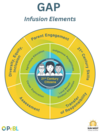
Teachers understand that there are many layers of content, outcomes, skills, and experiences that our students require throughout their educational journey to become competent 21st century learners. Teachers have must dos, such as curricular outcomes and assessment, but there are also many additional elements to provide enrichment to learning for students. All of these layers can become overwhelming if only considered from the perspective of teaching these elements in silos. GAP or Grade Alike Planning in Sun West has offered opportunities to teachers to reimagine these elements by infusing them together. The GAP Infusion Poster illustrates a visual of this philosophy where many elements are blended thoughtfully together to meet many learning outcomes, provide many opportunities, and give students' voice and choice in their learning by exploring their interests and learning needs.

This project was created in conjunction with the McDowell Research project - Decolonizing curriculum. It was designed collaboratively with Indigenous teachers and is intended for Indigenous students. It is place based on Treaty Four, George Gordon First Nation. It is based on a holistic planning and assessment foundation.

"Le monde est petit propose des capsules d’information adaptées pour les 8-10 ans. Des notions d’actualité sont expliqeées avec doigté et clarté pour aider les petits citoyens à mieux comprendre le monde. Le but : faire grandir le sentiment de compétence des enfants." - pour ceux de 8 à 15 ans